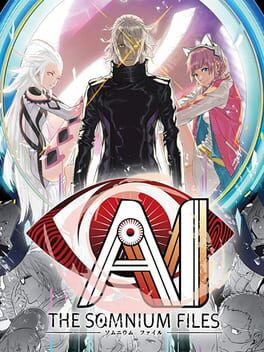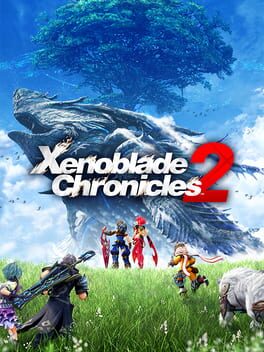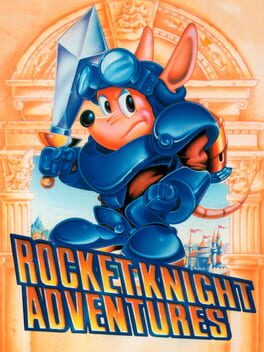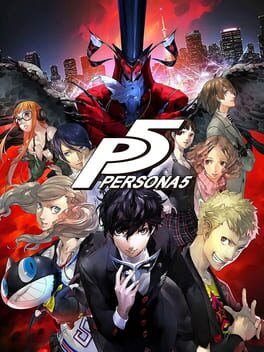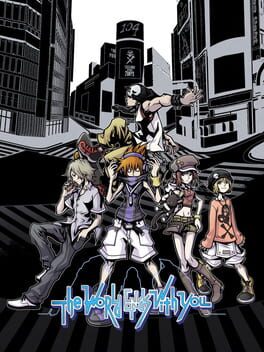SketchItCat
It has high highs, and ridiculously low lows. It has the bones of a good sci-fi detective mystery, it has a lot of interesting moving pieces, and it has some very good ideas. But ultimately it fumbles them in its execution as it attempts to act similar to Phoenix Wright's comedic tone, when the game functions better as a serious crime thriller. The comedy as well largely hinges on half the jokes being toward or in spite of women compared to Phoenix Wright, which makes the game much like the Yakuza series, something that I cannot in any good faith ever recommend to any of my woman friends.
Iris route is really bad, both in how it barely serves to forward the plot until the true ending, as well as how Iris can really grate on the player when she isn't just a side character. The fact you can choose Iris route first purely by a 50/50 coin flip at the start of the game can make the game rough to play. It is hard to describe just how much better Mizuki route is.
There are some really good and solid characters that are dragged down by some legitimately really awful ones with Aiba and Date's relationship being a highlight. Visuals and style could be beautiful, but also rough around the edges as it was clear they were working with a small budget. Playing around with dreams could be quite interesting but many puzzles were guesswork as a result. The action sequences could be funny, but were generally pretty bad. There was a lot of heart in here, but... Overall... Weakest of the big Mystery VNs in my opinion.
Iris route is really bad, both in how it barely serves to forward the plot until the true ending, as well as how Iris can really grate on the player when she isn't just a side character. The fact you can choose Iris route first purely by a 50/50 coin flip at the start of the game can make the game rough to play. It is hard to describe just how much better Mizuki route is.
There are some really good and solid characters that are dragged down by some legitimately really awful ones with Aiba and Date's relationship being a highlight. Visuals and style could be beautiful, but also rough around the edges as it was clear they were working with a small budget. Playing around with dreams could be quite interesting but many puzzles were guesswork as a result. The action sequences could be funny, but were generally pretty bad. There was a lot of heart in here, but... Overall... Weakest of the big Mystery VNs in my opinion.
I wish Morag and Brighid would make out on screen.
This game honestly feels like an overly ambitious mess that is like a parody of JRPG games. The overly complicated Blade system which also strangely plays itself, the utterly alien characters and dialogue, the strong performance issues where it feels like it is about to crash my Switch, and the utterly incomprehensible story that felt like it was written by a grade schooler who watched too much anime. It had its good moments, fun character designs especially for Blades, and the gacha elements were fun on paper (I'd really love a full price game that had a built in gacha like this game but used more effectively). I'm conflicted as I didn't hate it, and I don't think the game is awful, but I cannot in good faith recommend this to anyone.
This game honestly feels like an overly ambitious mess that is like a parody of JRPG games. The overly complicated Blade system which also strangely plays itself, the utterly alien characters and dialogue, the strong performance issues where it feels like it is about to crash my Switch, and the utterly incomprehensible story that felt like it was written by a grade schooler who watched too much anime. It had its good moments, fun character designs especially for Blades, and the gacha elements were fun on paper (I'd really love a full price game that had a built in gacha like this game but used more effectively). I'm conflicted as I didn't hate it, and I don't think the game is awful, but I cannot in good faith recommend this to anyone.
2018
Supergiant showed off their strengths in this game that is a culmination of their previous ones. Taking the strengths of early access to create an addictive roguelike with interesting upgrade paths, fun characters that are a very interesting spin on Greek Mythology, and snappy gameplay. I was glued to my seat from minute one, and loved exploring the Underworld while smashing apart enemies, collecting loot, and seeing more about the character that the team had brought out of these old Greek legends that if you're even semi-familiar with will put a smile to your face. As much as I think this game is a great introduction to roguelikes for many people, and would be my go to recommendation for the genre, I cannot rate it higher due to glaring flaws in its execution in my opinion. First of all, is the progression, which can taper off completely near the end of the game. Roguelikes live and die by their progression, as that is the core appeal of the games, short runs that can get very far, that have lasting rewards between runs to get further the next time. Hades starts off with excellent upgrading progression, but falls off about midway through the game to having most upgrades being insignificant in the latter half, this is a shame since there are clearly a lot of avenues by which it would have been possible to add more which can make the end game of Hades feel like a slog where it feels like very little is being unlocked. This also bleeds into the end game having less variety than it should have. Secondly, is how story progression is made. Story progression is made through dying and being able to speak to NPCs again, where they will sometimes have more dialogue if you completed new objectives or met certain thresholds. The problem with this however, is that it feels like it was programmed with very strange priorities, and also cannot be done in one return to camp. What I mean is, if you are very successful in a few short runs, then you will end up stacking dialogue with characters that you can only proceed by dying. Later on, this can mean completely locking yourself out of progressing a character's story until you die 20 times to pass through all their progression dialogue so you can finally get back to their new character dialogue. There are some characters who I have spoken to upwards to 40 times that I cannot unlock the relics of because I had so many progression dialogue sections unlocked for them that I was still catching up on them. The only way to fix this as a player is to kill yourself over and over again, which is incredibly tedious, and could be fixed easily with better priorities on the NPCs for which dialogue comes first.
2016
Persona 5 is a good game, but I cannot say it is a great one. If it is your first Persona game, it is easy to fall in love with its stunning visuals, great gameplay that is speedy and action packed with the new addition of baton pass, and fun cast of characters. It lulls you into the idea of it having a story that is willing on touching on taboos', introducing real world problems and a heinous villain that still sticks with me today. However, that is only the first few hours of the game. Messy execution of the Phantom Thieves' story, mixed and contradicting themes about individuality while conforming to society, each successive villain being less impressive than the first, with the last not even being intimidating, and more make it clear that some parts of the game are very hollow. I cannot say that I got very attached to the Phantom Thieves, and that is not for a lack of me trying, aside from Futaba and Makoto, all the Phantom Thieves have very little conflict within themselves, they are victims of circumstance rather than characters with flaws they must overcome, which make them less engaging than characters from the previous two entries. While I still liked characters like Futaba and Yusuke, the Phantom Thieves felt more like accomplices rather than an engaging group that had interesting dynamics. The fusion system is revamped from Persona 4, but without a system like shuffle time that Golden introduced, it can feel more limiting despite having a few more options. The social commentary it introduces sounds good on paper, but is often executed poorly and feels superficial.
2012
Summer memories of making friends, going to hangout and having legitimate connections that you carry with you for the rest of your life are the feelings this game evokes perfectly. In an RPG, the thing I value most is the party dynamic, and Persona 4 Golden has the best RPG party in my opinion, each character has a unique and fun dynamic with every other party member shown through their interactions and past in the game, making the small town of Inaba become recognizable, and feel like a second home. The themes of discovering oneself are universal, and it would be hard to get through every party member's dungeon without relating at least somewhat to at least one of the characters. The engaging web of relationships leads into the social link element of the game which while aged and could be better considering that each was written separately from the main story, still provide some depth and time management to the RPG system. The concise way battles work, the fusion mechanics, and the enjoyable shuffle time at the end of battles makes for laid back gameplay that can put your skills to the test on bosses should you not grind too much, and otherwise let you go ham if you want to show off your ability to build good characters in an RPG. Some elements of the game have not aged well, but its strengths override the dated portions. There is a reason this game is still spoken about, and compared to its successor Persona 5.
A very ambitious and creative game made for the DS. One of the most influential games I have played due to its sense of style, strong character driven story, and crazily addictive gameplay. All the characters are interesting and charming in their own way that I struggle to think of a player who will not grow on them if they manage to stick through the game. Some story elements have not aged the greatest, and while the gameplay is incredibly satisfying with a high skill ceiling, those who cannot focus on both screens on the DS at the same time will stumble and be unable to surmount the skill floor. One of the best post-game content in a game that I have ever seen, and I believe that every single RPG should adopt this game's drop rate and difficulty system as it is so engaging. The quintessential DS game that encapsulates everything that made the system great.
A truly moving game that tells one of the most compelling sci fi stories ever created in video games. Its storytelling in visual novel form, is structured in such a way that it perfectly shows what storytelling is capable of through the medium of video games. No matter which story path you play through first, and what order you go through the game, you will be getting twists, red herrings, and revelations all the way up until the conclusion of the game that wraps up in such a sweet and emotional bow. It has issues with some story segments being repetitive, and the overall strategy gameplay could definitely have had more time and care put into it, however the strengths of this game completely outweigh the penalties. If you are a fan of sci-fi of any kind, this game will satisfy the reader in you.
